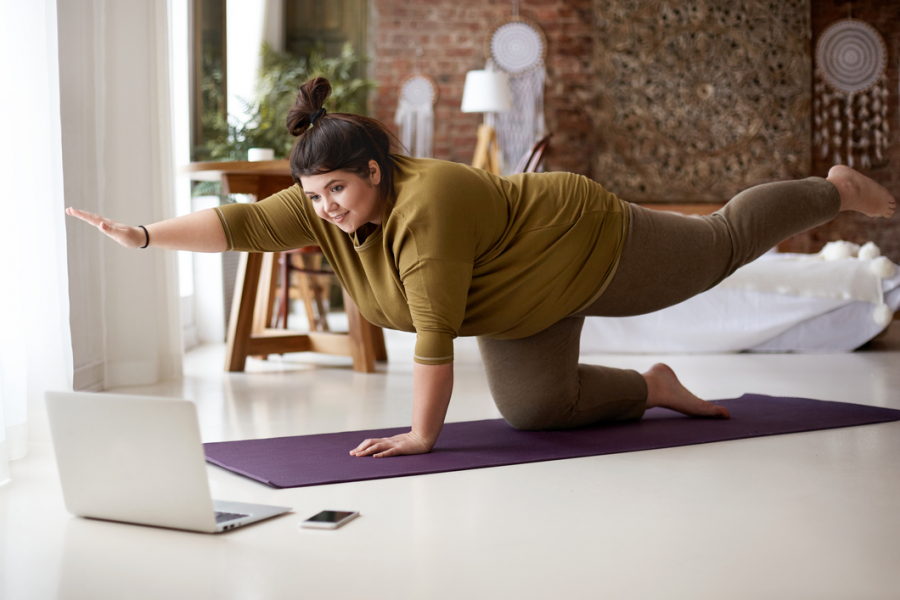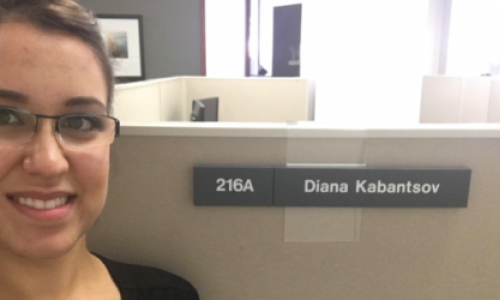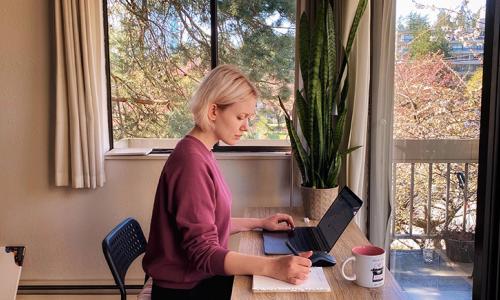
Staying motivated to exercise can be tough, especially during the colder months and as the semester progresses. The Health Peer Educators did an informal Instagram poll to learn what barriers students faced when trying to stay active at home. Based on the replies, here are some tips for tackling them:
Bad weather can be unmotivating and make it difficult to stay active, especially when you don’t have a very big space to exercise in your home. However, there are some things that you can still do to make exercising a little bit easier for you when the weather outside isn’t all that pleasant:
-
If you have access to the mountains, use them! Snowshoeing, sledding or skiing can be fun and interesting additions to your workout routine.
- Take advantage of the good weather! It’s important to make the most of the few days of sun this winter by going outside as much as possible. However, don’t be afraid of a little cold weather. Bundle up and take an umbrella with you if the weather is not too bad. Even going for a quick walk can be really good for both your mental and physical health.
- Use your chores as exercise! If you’re stuck inside with no space for a traditional “workout”, put on some upbeat music and get a head start on spring cleaning. If you work hard and quickly at things, like scrubbing the floors or vacuuming the whole house, you can work up a sweat without even realizing it!
- Check out SFU Recreation’s Virtual Classes! All of the classes are filmed in group fitness instructors’ homes and consist of bodyweight exercises to help you get your cardio and strength training in. You can complete these live or watch the recorded videos later.
Finding the energy to work out can be hard for students as school, work, and extracurriculars can be mentally draining. However, it is important to remember that exercise has numerous benefits including providing energy boosts. To help motivate you to get moving, here are some things to be mindful of:
-
Do something you enjoy! Try out different activities, like yoga, martial arts, or Zumba, by following along instructional videos on Youtube to help you find out what you enjoy. Doing an activity you love will help motivate you to stay active in the long-run and make exercise a more enjoyable experience for you.
- Give yourself credit. Any form of movement is VALID! Even chores and stretch breaks can be considered exercise. Don’t feel pressured to begin exercising with a high-intensity 60-minute workout. Start with small, low-intensity workouts and slowly build up your endurance and skills.
- Don’t compare yourself to others. Do what you want, and don’t let others’ activities, opinions or progress hamper your motivation. Remember, it’s not a competition. Do what feels good for your body!
Finding the motivation to workout can be difficult, and it’s even harder when you’re working out alone. As many of us are finding ourselves at home a lot more, it’s more important than ever to find out how to implement and maintain a healthy lifestyle. Here are some ways that you can combat workout loneliness:
-
Find someone in your immediate household to workout with. For example, Anna, one of the Health Peers, loves resistance training, but her sister loves running, so they alternate running and resistance training together. If there isn’t anyone who regularly exercises in your household, this could be a great opportunity to help someone else get moving!
-
Workout over Zoom or Facetime! If your workout buddy before COVID-19 doesn’t live in your household, you can still workout together virtually. This is a good way to safely catch up with friends too! If you’re lucky enough to have good weather, try going outside and exercise with a friend while following physical distancing guidelines!
- Try out a virtual class. Watching others work out can help you feel less lonely and provide you with an extra push and accountability. It can also give you a goal for your workout sessions and a program to help make it easier to build it into your routine.
Free time is often treated as a luxury by students, especially during finals time. However, it is important to remember that self-care is also very important and should be accounted for when planning out your day. When school-related stress starts to increase, exercise can be a great way to relieve stress, reduce muscle tension, and improve mood. Research has also shown that exercise improves memory and focus while decreasing anxiety and depression. Here are some ways that you can help schedule physical activity into your routine:
- Sneak an early morning or late workout in. Take advantage of the time that you have decreased productivity for, whether it’s late at night or early in the morning.
- Schedule it in. Don’t wait to have more free time, schedule it in. Setting aside some time each week for exercising will make you more likely to exercise.
- Break it up. Time adds up and if you break it up into small chunks it can make it feel less overwhelming. Perhaps during your study break, try doing some jumping jacks or holding a plank.
- Multi-task. Find creative ways to stay active, while also getting things done like jogging on the spot during presentations/lectures or going for walks while reviewing your cue cards.
Implementing and maintaining an active routine is important because it improves well-being and offers numerous long-term benefits, such as reducing the risk of cancer and cardiovascular diseases. So, remember to start with small changes, do what works for you and listen to your body.
















